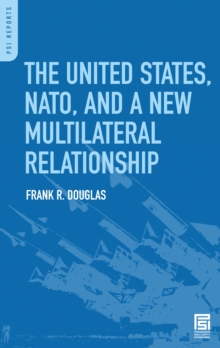
Korean Security in a Changing East Asia Hardback
by Terence Roehrig, Jungmin Seo, Uk Heo
Part of the PSI Reports series
Hardback
Description
Since its partition in the 1950s, the Korean peninsula has directly or indirectly shaped the broader security relations between regional powerhouses, and the recent test of a nuclear weapon by the North Korean regime has heightened tensions across the world.
This study draws upon contributions from a diverse array of experts who offer their perspectives on the region's complex network of alliances and hostilities.
The authors discuss the future of the region, the potential for military conflict and a new arms race, and the ways to maintain peace and stability. Since its partition in the 1950s, the Korean peninsula has directly or indirectly shaped the broader security relations between regional powerhouses, while the recent test of a nuclear weapon by the North Korean regime has heightened tensions across the world.
Japan, feeling increasingly threatened by the North Korean regime and China's extravagant military expenditures, has begun questioning Article IX in its Constitution that renounces war and the maintenance of armed forces.
Its neighbors, still haunted by Japanese atrocities during World War II, are fearful of a new nuclear arms race in the region.
The United States, for its part, has adopted unprecedented hard-line policies in response to 9/11, going so far as to condemn North Korea as part of an axis of evil.
It has strengthened its alliance with Japan and alienated its long-time strategic partner South Korea.
Add to this the economic entanglements of each of these countries both with each other and with the rest of the world, and the regional security issues become even more paramount. This study makes sense of these complex alliances and frictions and offers an array of perspectives on the future of the region, the potential for military conflict and a new arms race, and the ways to maintain peace and stability.
Topics include big power rivalries, South Korea's sunshine policy, anti-Americanism, and emerging nationalisms.
Information
-
Out of stock
- Format:Hardback
- Pages:224 pages
- Publisher:Bloomsbury Publishing Plc
- Publication Date:30/08/2007
- Category:
- ISBN:9780275998349
Information
-
Out of stock
- Format:Hardback
- Pages:224 pages
- Publisher:Bloomsbury Publishing Plc
- Publication Date:30/08/2007
- Category:
- ISBN:9780275998349










